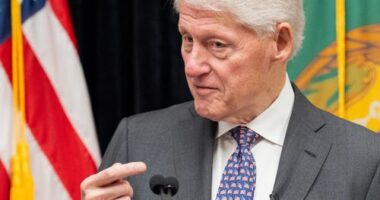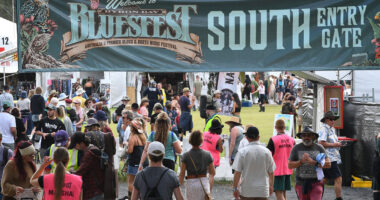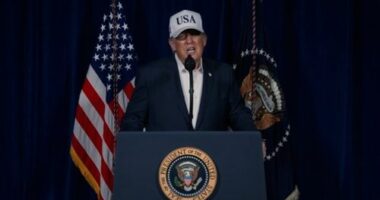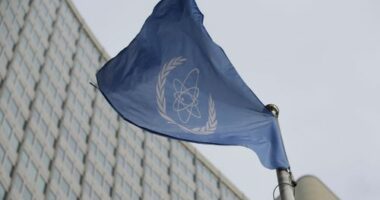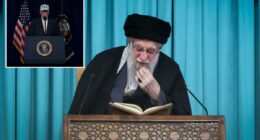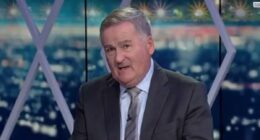Share this @internewscast.com
During the initial week of the federal election campaign, Peter Dutton indicated a plan to clamp down on the “woke” culture prevalent in schools.
“I believe there is a silent majority on this issue throughout the community,” .
However, the election results on Saturday night — which indicated — suggest that the silent majority rejected Dutton’s focus on culture wars.
Shaun Ratcliff of Accent Research mentioned he believes Dutton’s culture war remarks “damaged them universally”.
Besides his statements on a “woke” agenda in educational institutions, the deposed Opposition leader also declared his plans to cut immigration and lay off 41,000 public servants. He further announced and then .
In the campaign’s final week, he criticised Indigenous Welcome to Country ceremonies and stated .
Simon Welsh, director of Redbridge Group, concurs with Ratcliff, saying the remarks diverted the Coalition from its primary message and away from core conservative affairs like the economy and living expenses.
“It didn’t … connect with them in any meaningful manner,” he stated.
Welsh noted that, if outer suburban/regional communities were the target for such messaging, the suburban areas are not what the Liberals presume them to be.
“They are youthful, diverse, and increasingly progressive,” he noted.
He mentioned that the culture war narrative would be a “clear values disconnect” for individuals in outer suburban regions, possibly also in regional areas.
The comments also gave a “whiff of Trumpiness” that Welsh believes may have concerned voters, especially as the campaign coincided with widespread sackings as part of US President Donald Trump’s and his announcement of “reciprocal” tariffs, which led to .
“[It] created a fear of the chaos and uncertainty that could present because that’s Trump’s core brand — and that’s definitely what economically stressed voters in Australia did not want,” Welsh said.
While there were plenty of Coalition policies — such as the plan for — to worry voters, Welsh said adding Trump into the mix also brought fears of chaos, risk and uncertainty.
“That’s not what these voters were looking for; they were looking for a positive message,” he said.
Welsh said that outer suburban voters, as well as those in inner seat seats, also didn’t like “punching down”.
“There was a sort of meanness or a nastiness to what the Libs were proposing that fed into that.”
The danger of an ‘anti-woke’ message
Ratcliff agreed and said the anti-woke message only really help to stop voters on the right flank of the Coalition from jumping to parties like .
“But the issue is then, you’re trying to out-compete One Nation on being anti-woke,” he said. “So you get drawn into this battle — [and] it’s almost impossible for the Coalition to win.”
He said the Coalition had to appeal to a wider range of voters than One Nation so chasing voters on the right meant they were ceding ground to Labor in the centre.
“The danger of doing so means you’re giving up the middle class nurse married to a teacher in Chisholm who might be open to voting for the Coalition — they may even believe you’ve got to reduce the immigration rate, and that taxes are too high — but once you start going too far … chasing the One Nation voter, you start to turn off some of those voters.”
Conversely, Ratcliff pointed out that Accent’s research identified the cost of living, housing, and healthcare as the top three crucial issues for voters, and Labor relentlessly focused on these throughout their campaign.
On Monday, Liberal senator Andrew Bragg told ABC’s Radio National the Coalition didn’t have enough strong policies on the economy and the party should avoid the culture wars and other less central issues in the future.
“I think we have a healthy live and let live ethos in this country and we have diversity and, generally speaking, that’s what most Australians are comfortable with,” he said.
“They don’t want to see division and so I think it’s very important that we focus on the economic issues and that we avoid these culture war issues at all costs.”
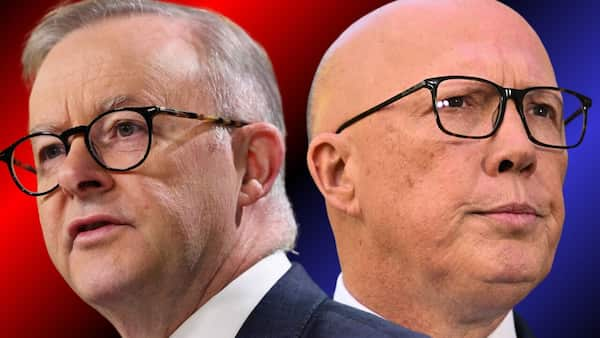
But billionaire mining magnate Gina Rinehart has blamed the “left media” for “frightening many in the Liberal Party from anything Trump and away from any Trump-like policies”.
“No doubt the left media will now try to claim that the Liberal loss was because the Liberal Party followed Trump and became too right!” she wrote in a post on her website.
“The two simply don’t add up!”
At the start of the campaign, Zareh Ghazarian, a political scientist from Monash University, warned that embarking on a Trump-style campaign would be “politically dangerous” for a leader in Australia.
He said Australia’s political system is not reliant on energising people to vote because it’s already compulsory, unlike in the US, and this means leaders have to address a wide range of issues affecting voters across capital cities, rural regional areas and in different states.
“Thanks to compulsory voting … the task for the [Australian] leader is to appeal to a really wide range [of voters] and not to speak to a very specific group of voters,” he told SBS News.
For the latest from SBS News, and .
Visit the to access articles, podcasts and videos from SBS News, NITV and our teams covering more than 60 languages.

